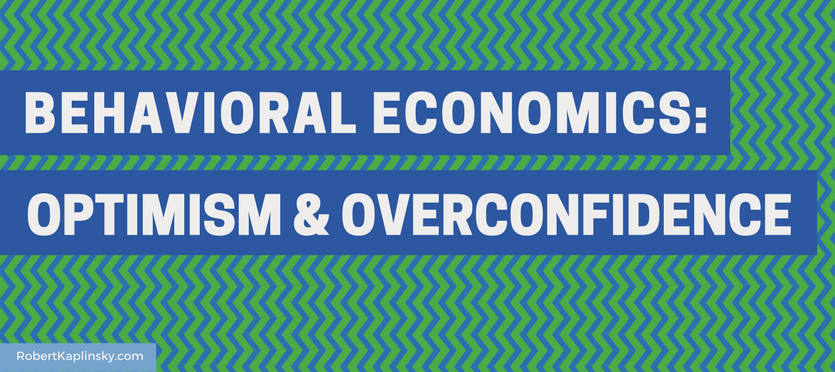NOTE: This is one of a series of ten blog posts on cognitive biases that have applications in education.
When we are too optimistic, we get overconfident and may fail to plan and act accordingly. I have seen no better example of this cognitive bias than the commercial from Prudential below. Watch the first 30 seconds for an outstanding way of demonstrating this concern.
As you saw in the video, participants were better equipped to accurately assess the past because it had already happened. They noted that there were a mixture of good and bad events in their lives. However, when they had to anticipate events that would take place in the future, the results seemed overly optimistic. There were a larger percentage of good events happening than seems reasonable based on previous experiences. This type of optimism leads to overconfidence that the future will be better than it will be and may result in a failure to plan accordingly.
The reality, as we all know, is that even past lessons that were well planned out still had a mixture of good and bad outcomes. Accordingly, we should realize that it is in our best interest to be prepared. Unfortunately, such optimism and related overconfidence may prevent teachers from adequately planning for how they will adjust their lesson if and when it doesn’t go as planned.
This anticipation is built into my favorite resource for teaching people how to implement tasks well: 5 Practices for Orchestrating Productive Mathematics Discussions from Peg Smith and Mary Kay Stein. Specifically, the very first practice when you prepare to implement a task is to anticipate potential student responses. This is an absolutely critical step.
Virtually every time I have ever had a lesson go disastrously, I can trace it back to not spending adequate time on this step. It makes sense though. I made a lesson that I thought was great. I was optimistic that it would go well to the point that I was overconfident and I didn’t plan ahead as much as I should have. Inevitably students didn’t do what I expected and I struggled to recover. This is a lesson I continue to learn the hard way, and I suspect I am not alone. We should acknowledge that this cognitive bias affects our ability to predict outcomes, and plan accordingly.
- studying for quizzes, tests, and finals
- determining how much time it will take to complete an assignment
- completing the minimum requirements for college acceptance
Clearly this list is not exhaustive. Accordingly, students may also benefit from watching this video and having conversations about how optimism and overconfidence affect their ability to adequately plan for the future.
Where else do you see optimism and overconfidence happening? How do you suggest we account for it?

